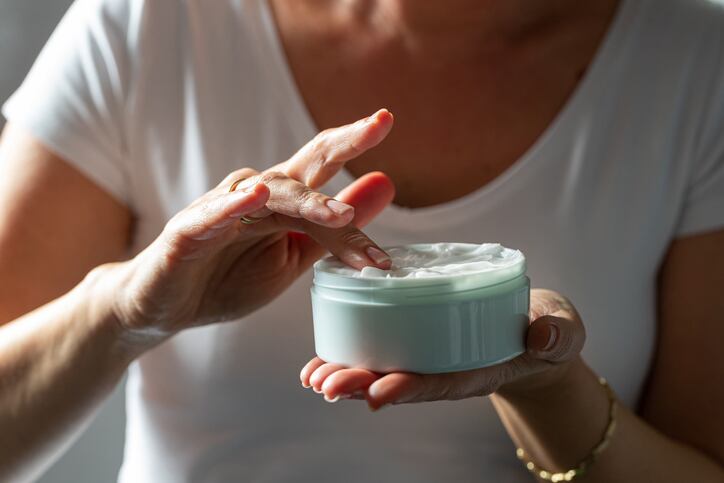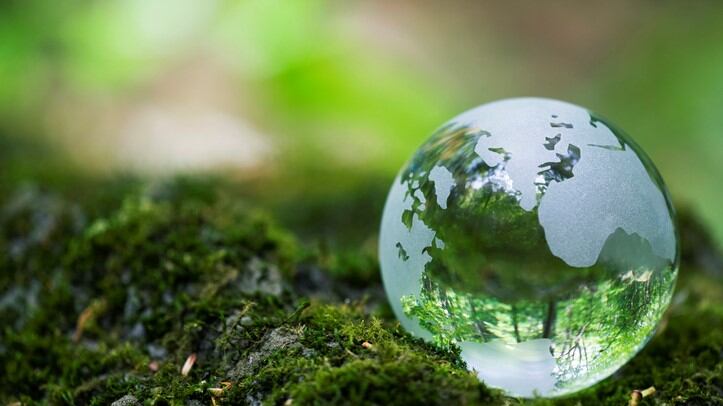1 – Sunscreen still needed: Protective surgical face masks ineffective against UV protection, says Kao
People still need to protect their skin from ultraviolet sun rays with sunscreen even when wearing protective surgical face masks, according to new research from Kao.
For the first experiment, researchers from the firm’s Beauty Research and Creation Center (BRCC) conducted the experiment on a model with ‘skin’ that turns purple when it comes into contact with ultraviolet (UV) rays.
A cream sunscreen with SPF 50+ and a triple plus protection grade (PA) was applied to half of the model’s face and protected with a standard non-woven surgical face mask.
As hypothesised, the skin underneath the mask that was not protected by sunscreen turned purple, indicating exposure to UV rays.
2 – Clean sweep: Clé De Peau’s new micellar cleansing water to feature Shiseido’s new make-up removing tech
Japanese beauty giant Shiseido has developed new technology to enhance the effectiveness of micellar water that it will launch with Clé De Peau Beauté starting from June 2021.
The latest tech will be applied to Clé De Peau Beauté Micellar Cleansing Water will be rolled out in Japan in June and will be launched subsequently overseas from July.
Clé De Peau Beauté Micellar Cleansing Water will be the first product to be enhanced with the newly developed tech and Shiseido intends to develop more cleansing products with it in the future.
The impetus of the new launch was Shiseido’s development of a unique state of surfactant, the sponge phase.
3 – Skin shield: Multifunctional and natural claims key for protective beauty following COVID-19
The COVID-19 pandemic will heighten demand for skin products that protect ‘against a host of aggressors’ beyond pollution, claims the founder of a New Zealand natural ingredient firm.
With more consumers expressing concern over the impact of pollution, beauty products that claim to protect against industrial pollution has become more common in the past few years.
“We noticed this trend starting years ago along with the issue of pollution. Asian consumers especially became more aware with the harsh pollution in places like China,” said Andrea Taimana, founder and CSO of Organic Bioactives, a New Zealand-based cosmetics ingredient firm.
“At the same time, there was a lot of research done about how free radicals from environmental pollution and sun damage combined are really harmful to the skin.”
4 – Is clean beauty under attack and what can be done about it?
In recent months a growing body of negative media coverage has served to discredit clean beauty. The honeymoon period is definitely over.
In this article CosmeticsDesign-USA (CDU) speaks to Gay Timmons, president of the Natural and Organic Health and Beauty Alliance, to find out why this is happening and what can be done to put the movement back on track.
Clean beauty has evolved on the back of consumer concerns over potentially toxic ingredients in the beauty and personal care products they buy, as well as the impact they many have on the environment. The movement is designed to help the growing band of conscious consumers identify products that are both good for their bodies and the environment.
But confusion over what clean beauty actually means is fueling a growing body of negative, and often inaccurate reporting on the subject that is throwing up a lot of questions. In this interview, Timmons reveals why this is happening, what can be done about it, and what the future might hold for clean beauty.
5 – Melanin reduction: Malaysian researchers formulate and trial skin lightening cream containing betel leaf extract on human subjects
Researchers in Malaysia have formulated a cream containing Piper betle L. extract which has been shown to reduce melanin content, lighten skin tone, and improve skin elasticity among human subjects.
Piper betle L is a native leaf from Malaysia also known as sireh. Its skin lightening effect is believed to be contributed by a compound named hydroxychavicol (1-allyl-3,4-dihydroxybenzene).
Currently, most skin lightening agents are chemical based such as hydroquinone, arbutin, tretinoin and alpha hydroxyl-acids (kojic acid, gycolic acid and lactic acid). These act by inhibiting the activity of the tyrosinase enzyme, which decreases melanin production of melanin, leading to depigmenting or whitening effect.
However, these agents tend to cause adverse effects such as skin irritation and contact dermatitis. So, this has sparked interest in finding alternative skin-lightening agents from natural sources such as plant extracts, with the belief that they are safer to use than synthetic chemical agents.





